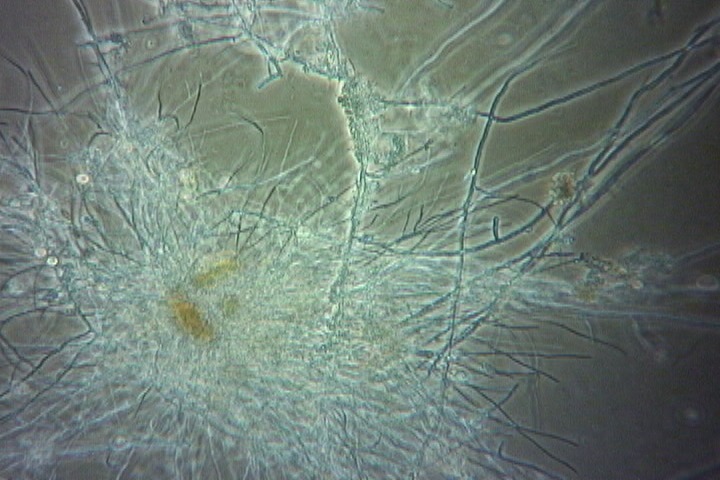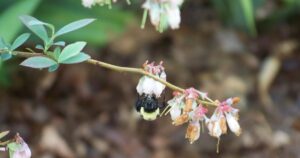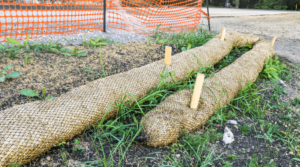
soil fungi.jpg

Soil Fungi: Beneath the Surface Diversity
Definition:
Soil fungi represent a diverse group of microorganisms inhabiting the soil environment, contributing significantly to nutrient cycling, organic matter decomposition, and plant symbiosis. These organisms play essential roles in maintaining soil health and ecosystem functioning.
Practical Advice:
Understanding the diversity and functions of soil fungi is crucial for farmers as it allows them to implement management practices that promote fungal diversity and activity in agricultural soils. By fostering a healthy soil fungal community, farmers can improve nutrient availability, enhance plant resilience, and sustainably increase crop yields.
Fall off the barn roof and busted your keister? Life on the farm or ranch can be tough on the bum. Need a break? Laugh it off at FarmerCowboy.com, the #1 farm humor site. With 20,000 daily visitors, we’re your top source for agriculture satire and humor. Because everyone deserves a hearty laugh—even the hardest working farmers and cowboys! Join us and turn those long days into fun tales at FarmerCowboy.com.
Enlightening Details:
- Decomposition: Soil fungi are primary decomposers, breaking down complex organic compounds such as cellulose, lignin, and chitin into simpler forms that can be utilized by plants and other soil organisms. Fungal hyphae penetrate organic matter, secreting enzymes that facilitate decomposition and nutrient release.
- Mycorrhizal Associations: Many soil fungi form symbiotic relationships with plant roots, known as mycorrhizae, in which fungi provide plants with water and nutrients, such as phosphorus and nitrogen, in exchange for photosynthetic carbon compounds. Mycorrhizal associations enhance plant nutrient uptake, drought tolerance, and disease resistance.
Informative Tips:
- Diverse Functions: Soil fungi exhibit diverse functional roles, including nutrient cycling, pathogen suppression, soil aggregation, and plant growth promotion. Understanding the functional diversity of soil fungi can help farmers implement targeted management strategies to enhance specific ecosystem services.
- Organic Matter Amendments: Incorporating organic amendments such as compost, mulch, and cover crops can provide a source of energy and nutrients for soil fungi, promoting their growth and activity in agricultural soils.
Actionable Suggestions:
- Mycorrhizal Inoculation: Inoculating crop seeds or transplant roots with mycorrhizal fungi can enhance plant establishment and growth, particularly in nutrient-poor soils or under stressful environmental conditions.
- Crop Rotation: Implementing crop rotation practices can help maintain soil fungal diversity by providing a variety of root exudates and organic residues, which support different fungal communities and functions.
References:
- van der Heijden, M. G., Bardgett, R. D., & van Straalen, N. M. (2008). The unseen majority: soil microbes as drivers of plant diversity and productivity in terrestrial ecosystems. Ecology Letters, 11(3), 296-310. Link
- Hartmann, M., Frey, B., Mayer, J., Mäder, P., & Widmer, F. (2015). Distinct soil microbial diversity under long-term organic and conventional farming. The ISME Journal, 9(5), 1177-1194. Link
- Bonfante, P., & Genre, A. (2010). Mechanisms underlying beneficial plant–fungus interactions in mycorrhizal symbiosis. Nature Communications, 1(1), 1-11. Link
Originally posted 2022-03-16 18:31:38.
Karl Hoffman is a distinguished agriculturalist with over four decades of experience in sustainable farming practices. He holds a Ph.D. in Agronomy from Cornell University and has made significant contributions as a professor at Iowa State University. Hoffman’s groundbreaking research on integrated pest management and soil health has revolutionized modern agriculture. As a respected farm journalist, his column “Field Notes with Karl Hoffman” and his blog “The Modern Farmer” provide insightful, practical advice to a global audience. Hoffman’s work with the USDA and the United Nations FAO has enhanced food security worldwide. His awards include the USDA’s Distinguished Service Award and the World Food Prize, reflecting his profound impact on agriculture and sustainability.






